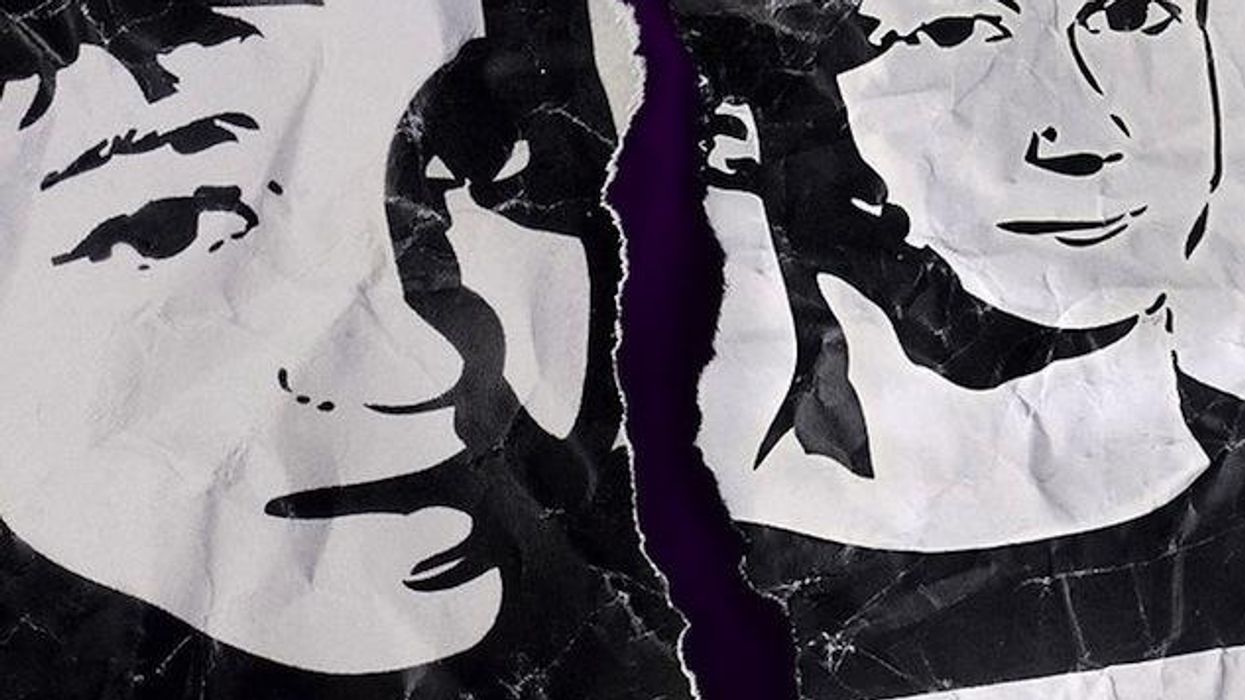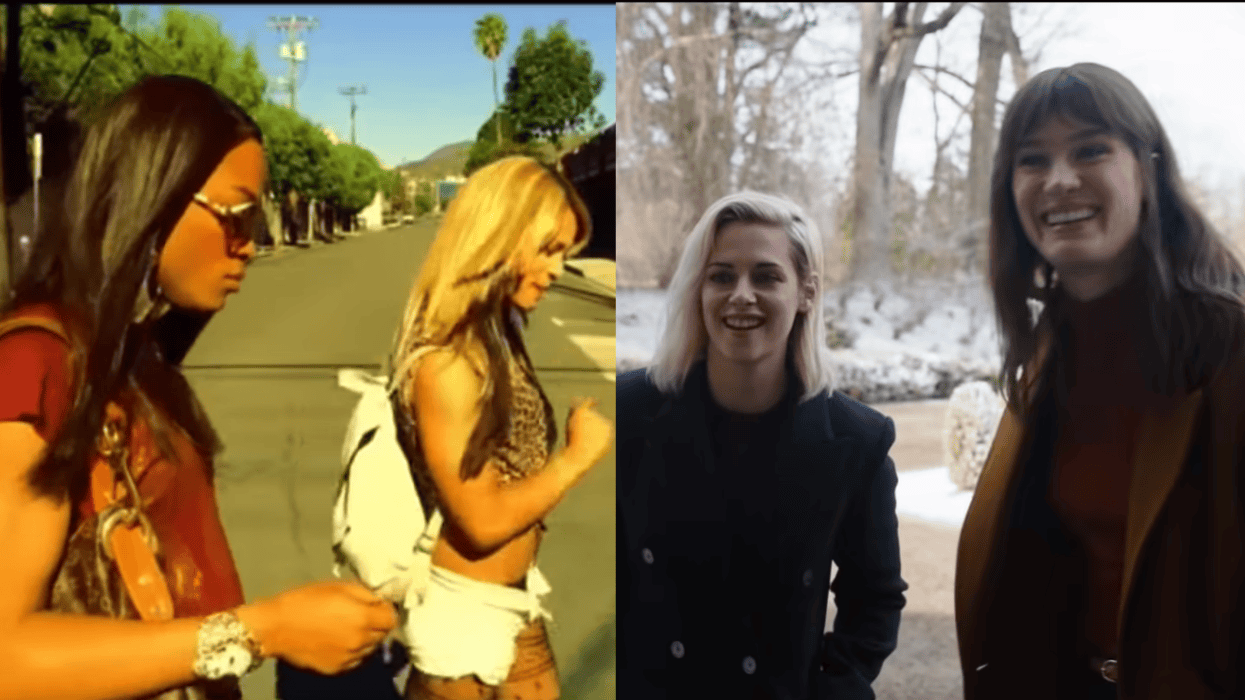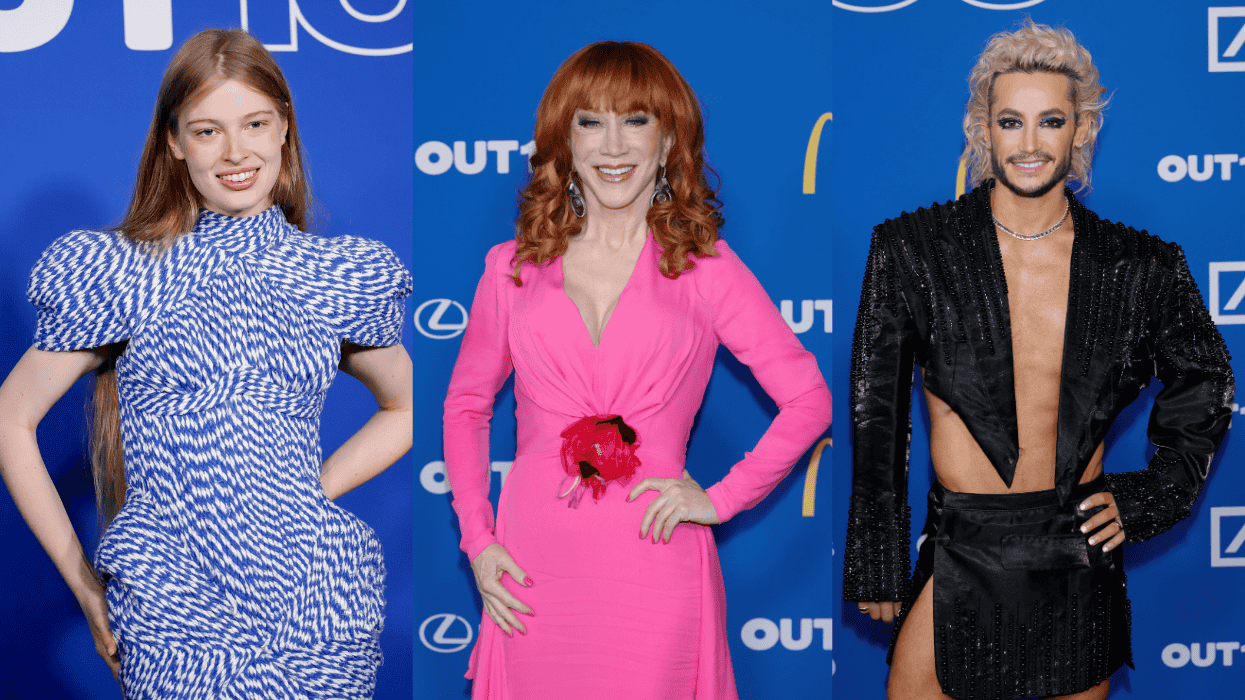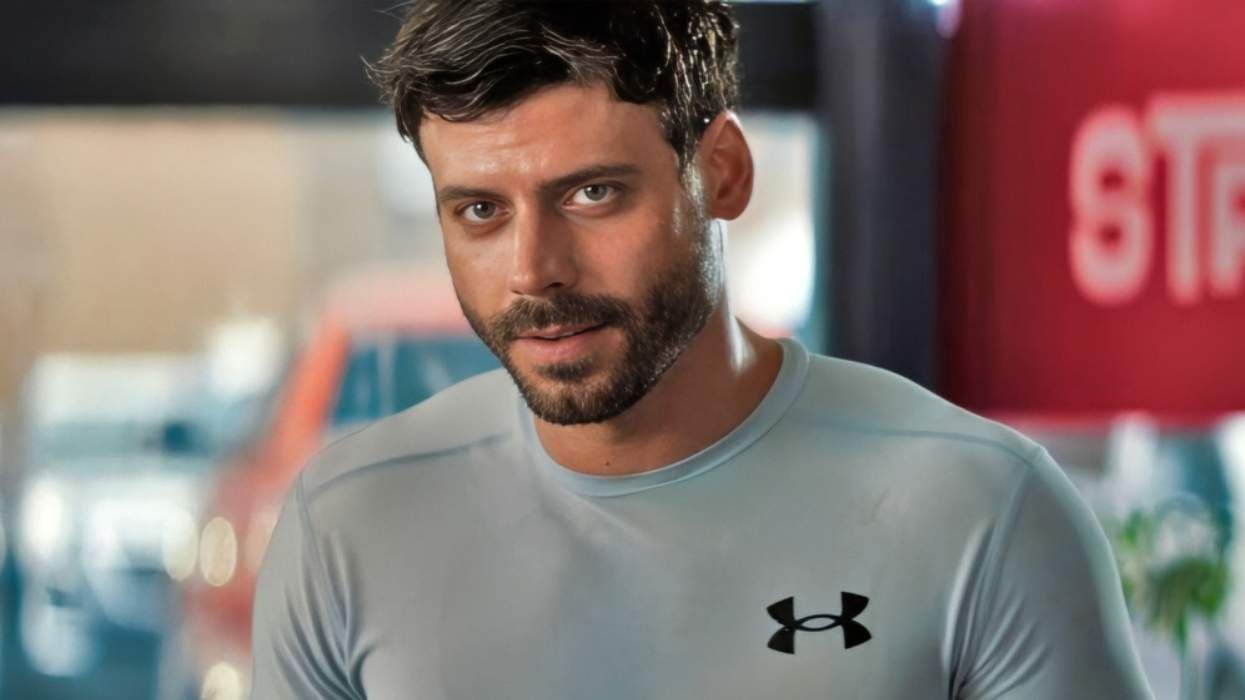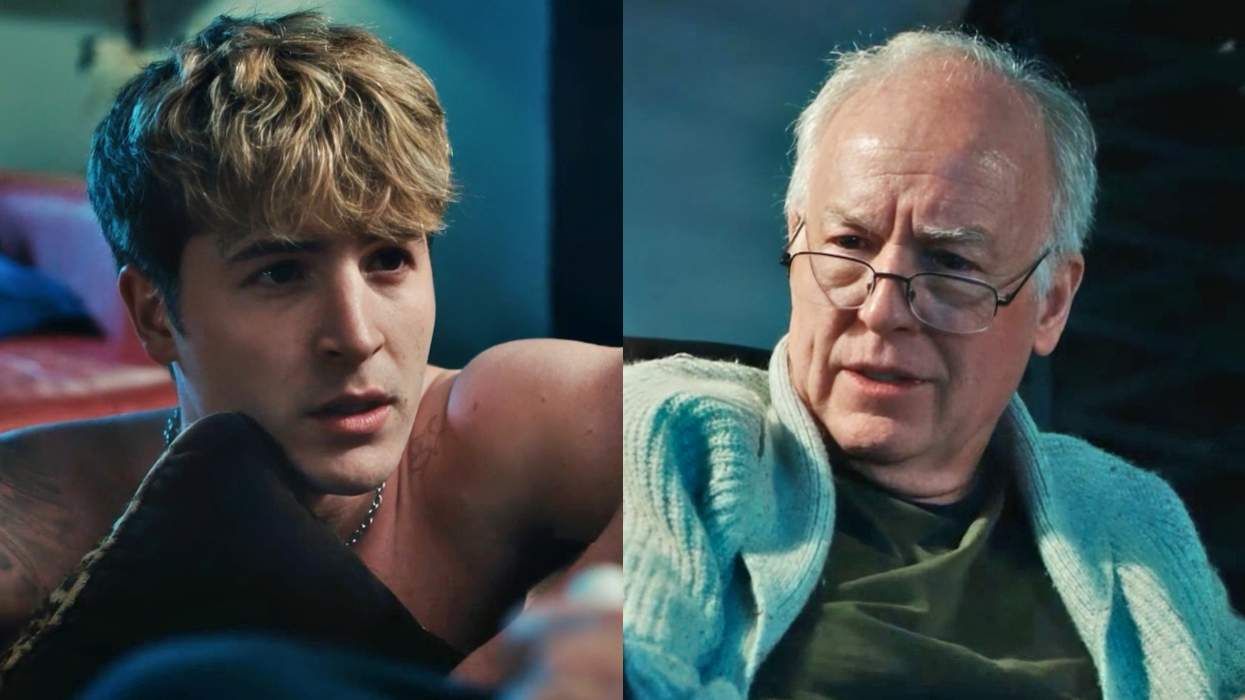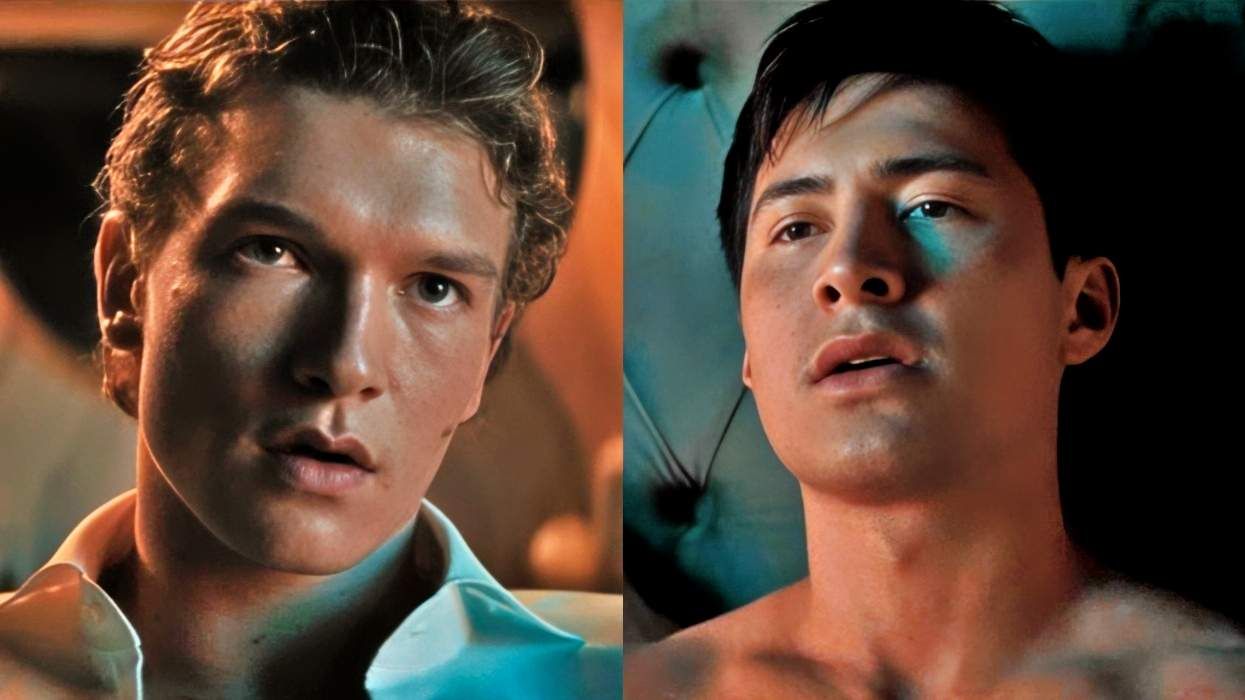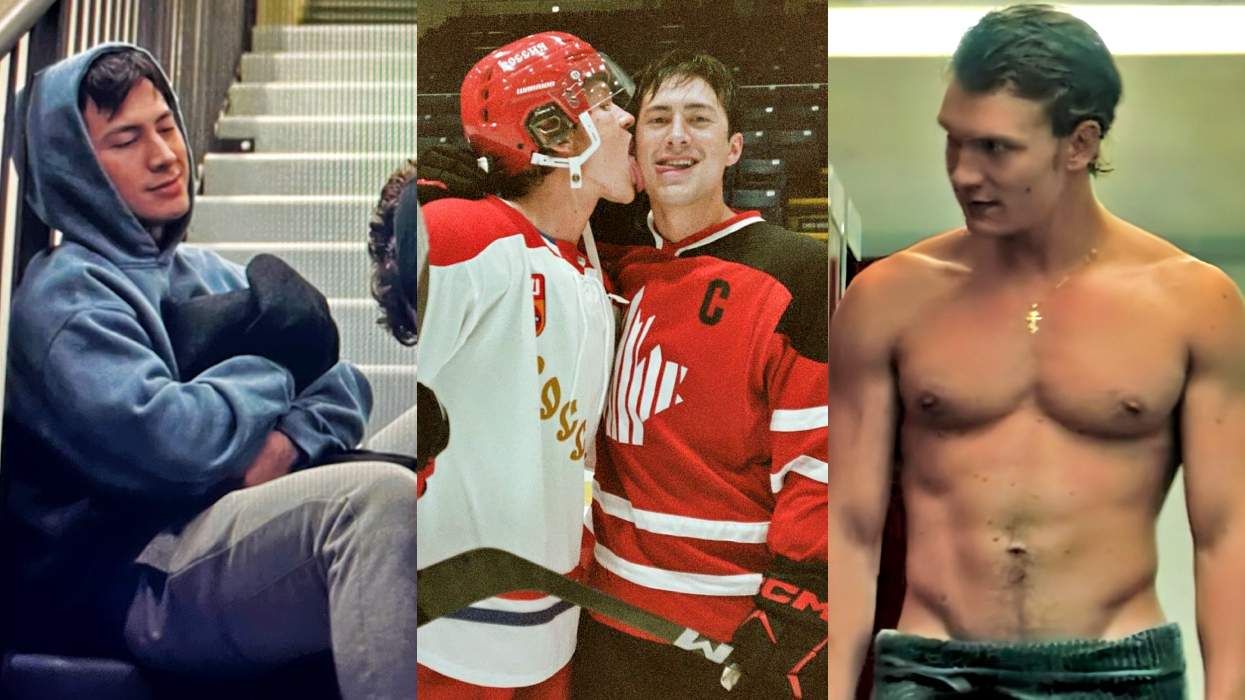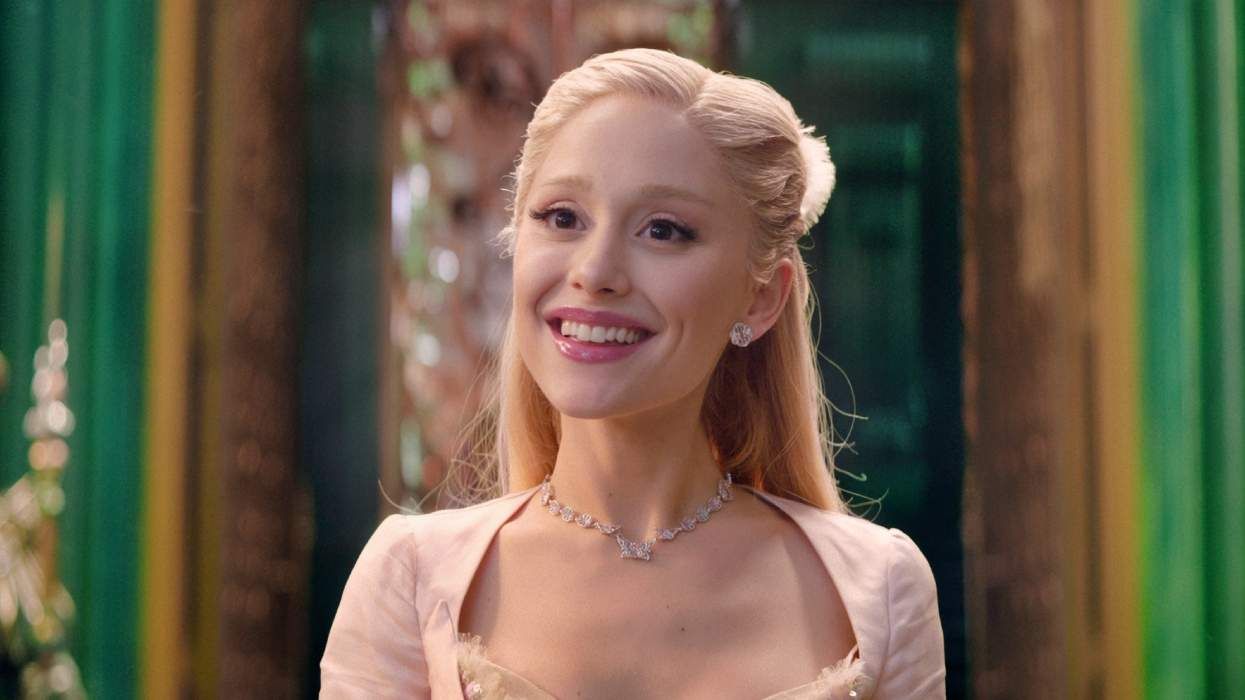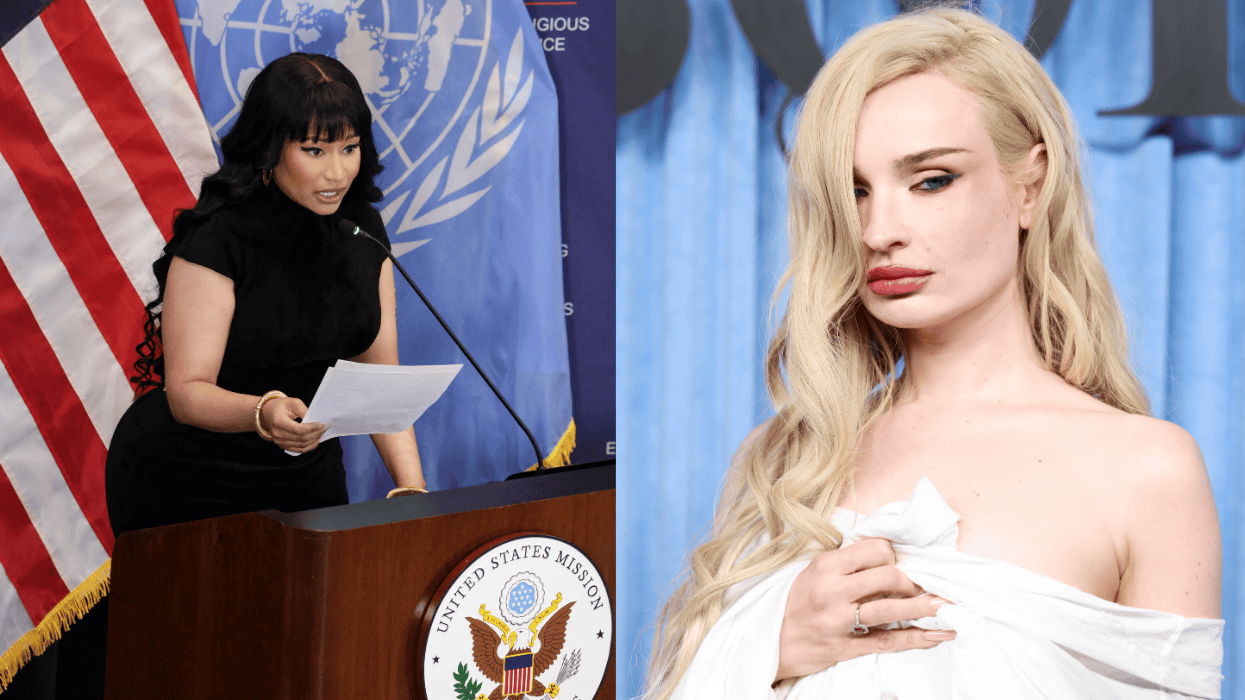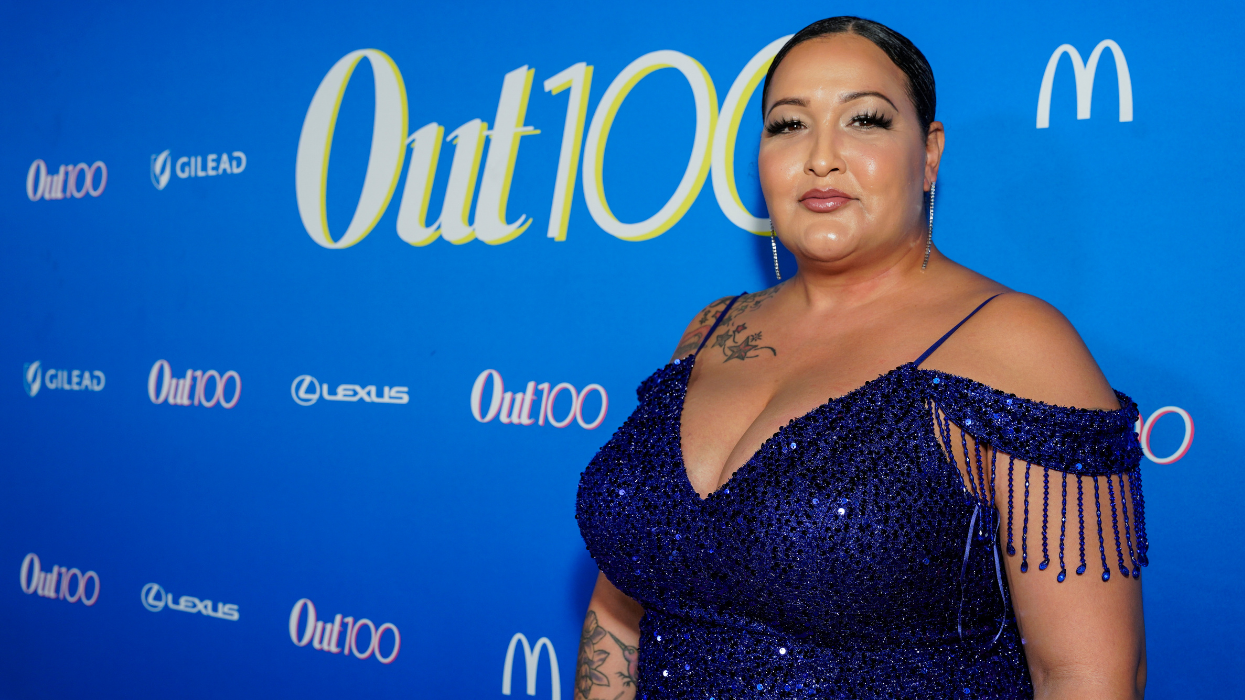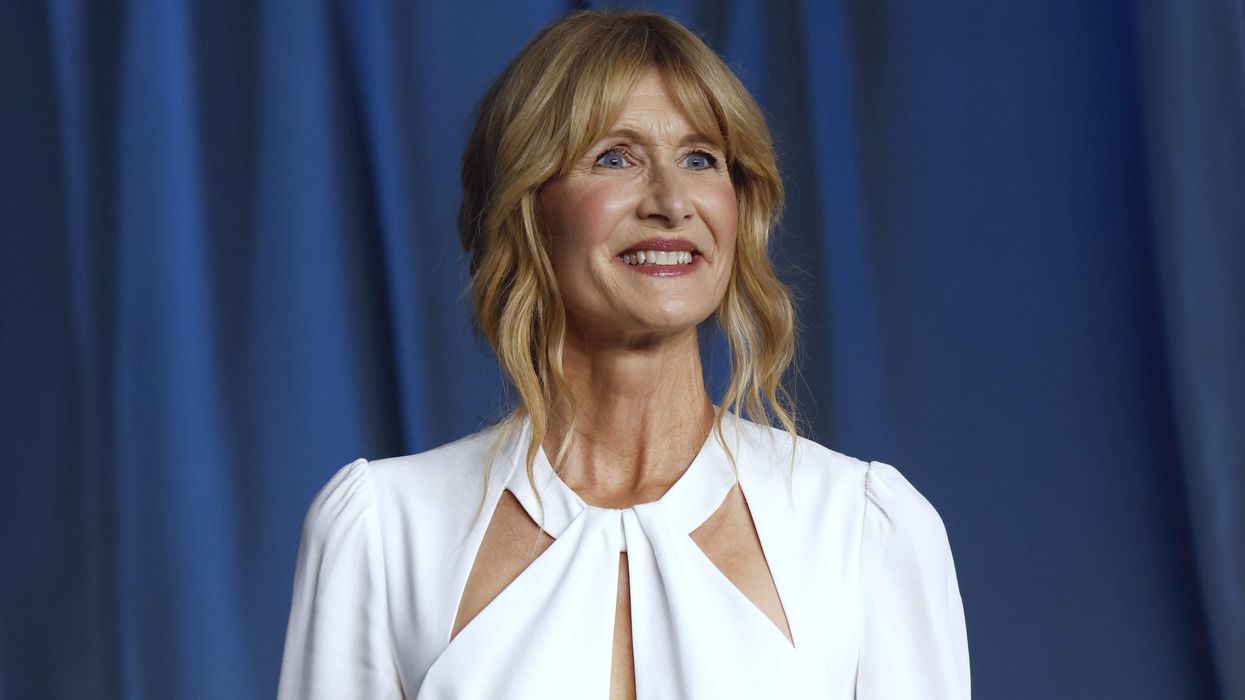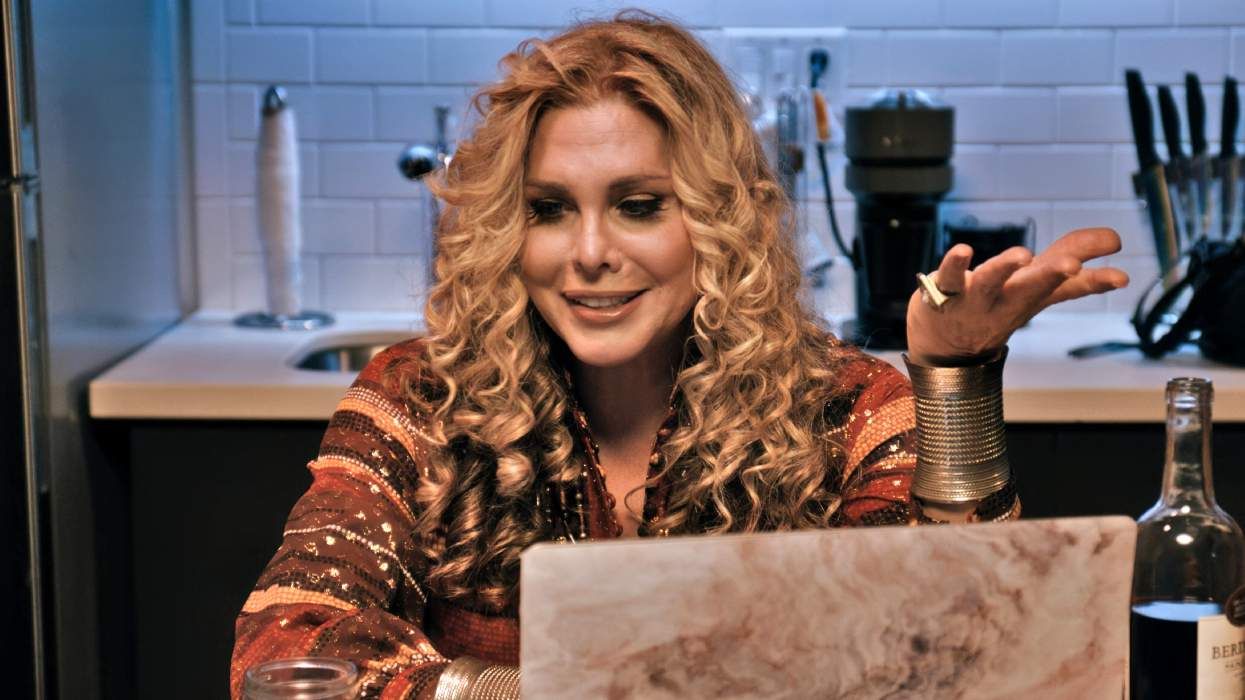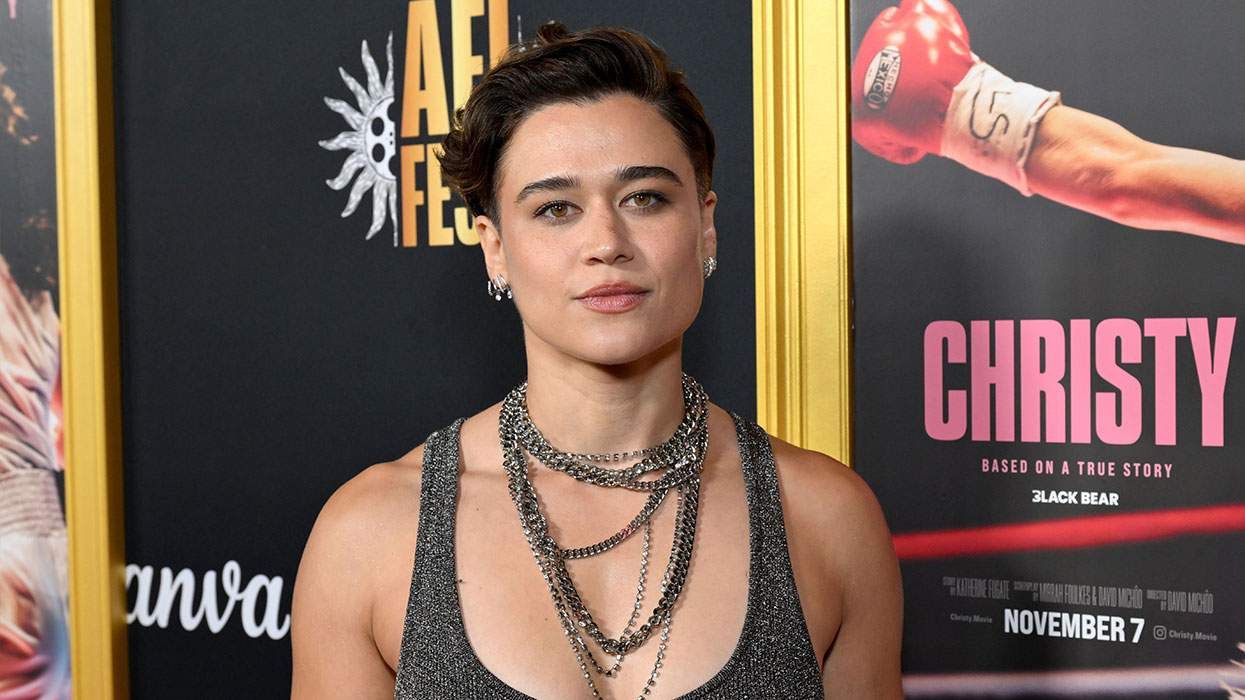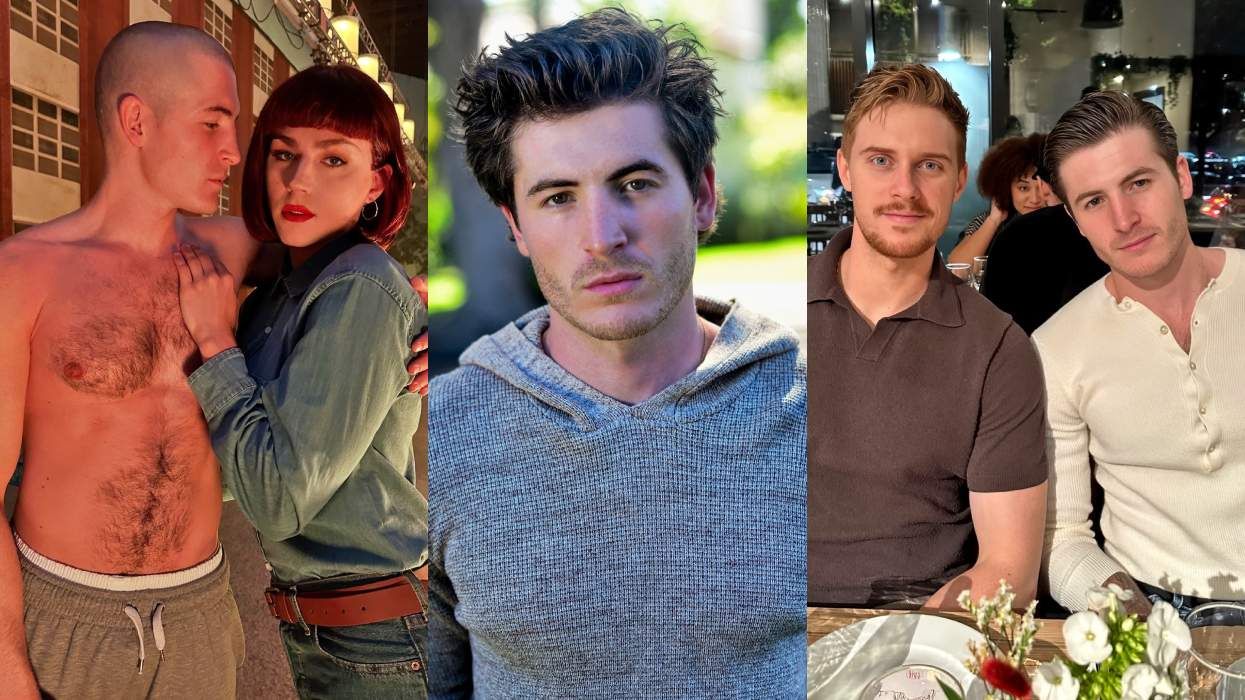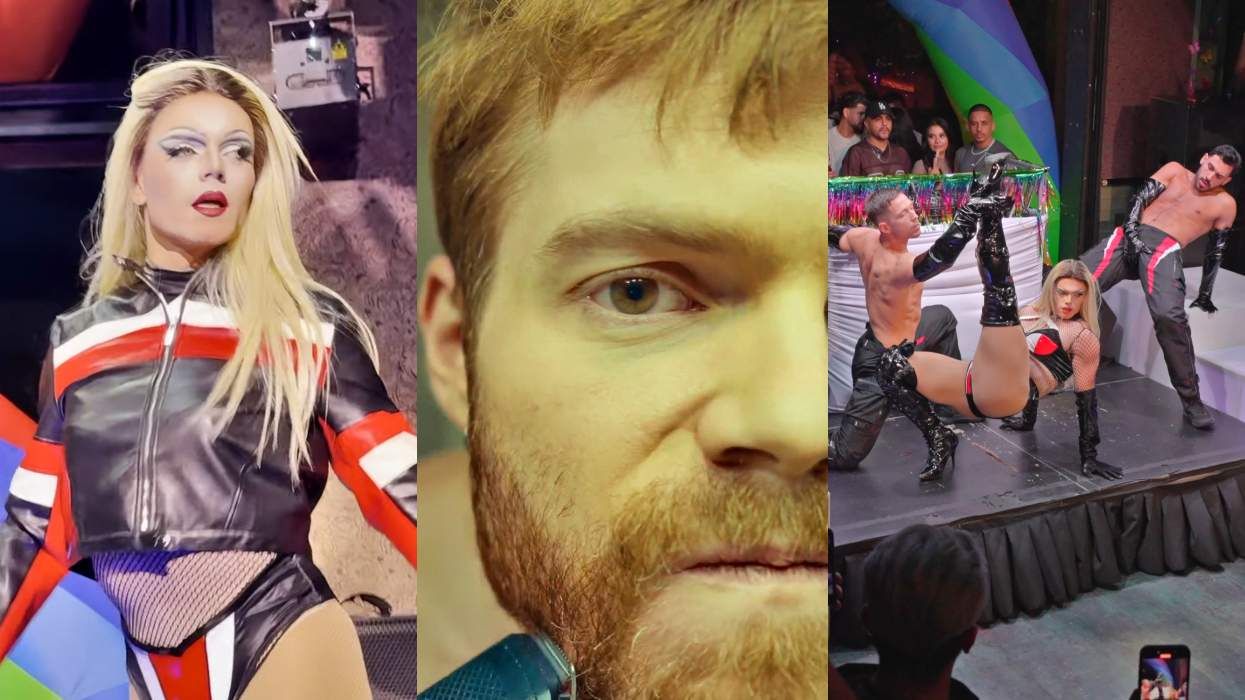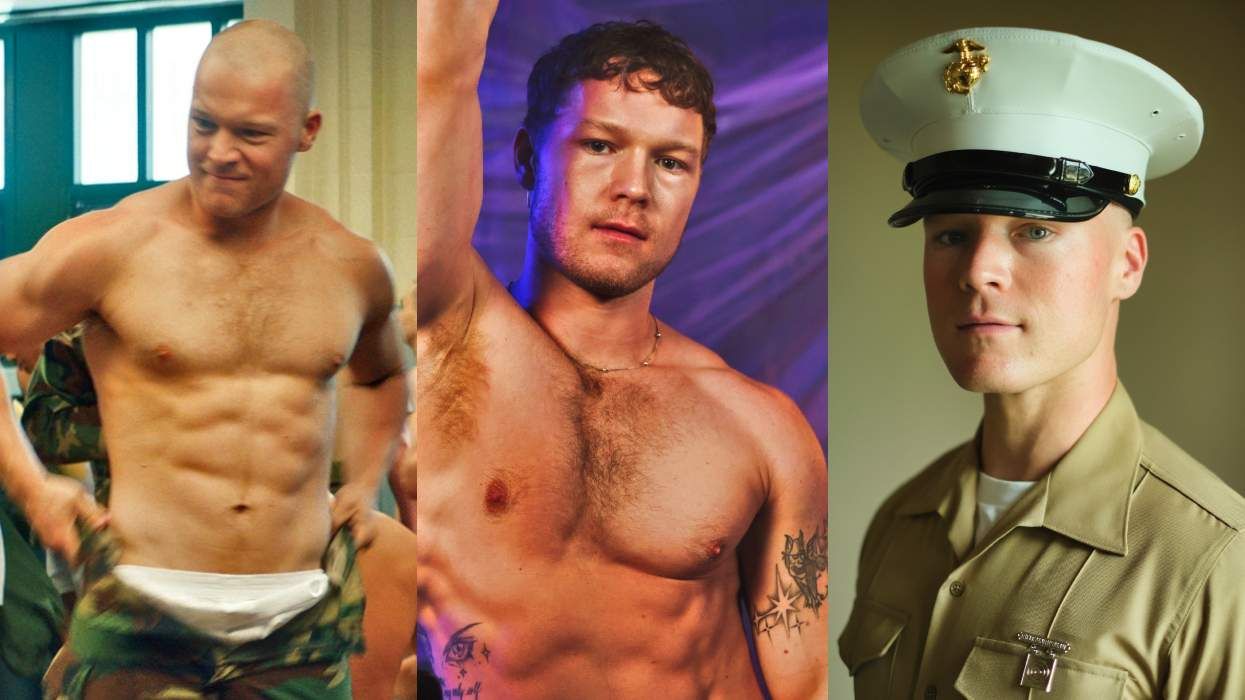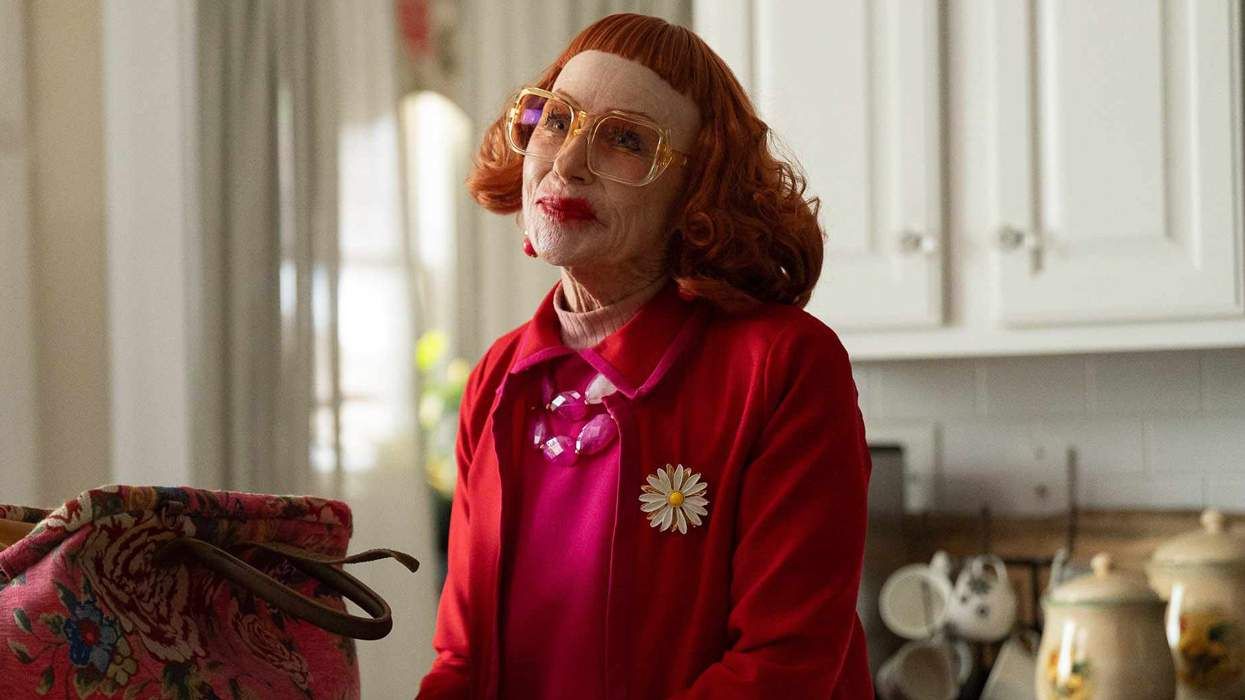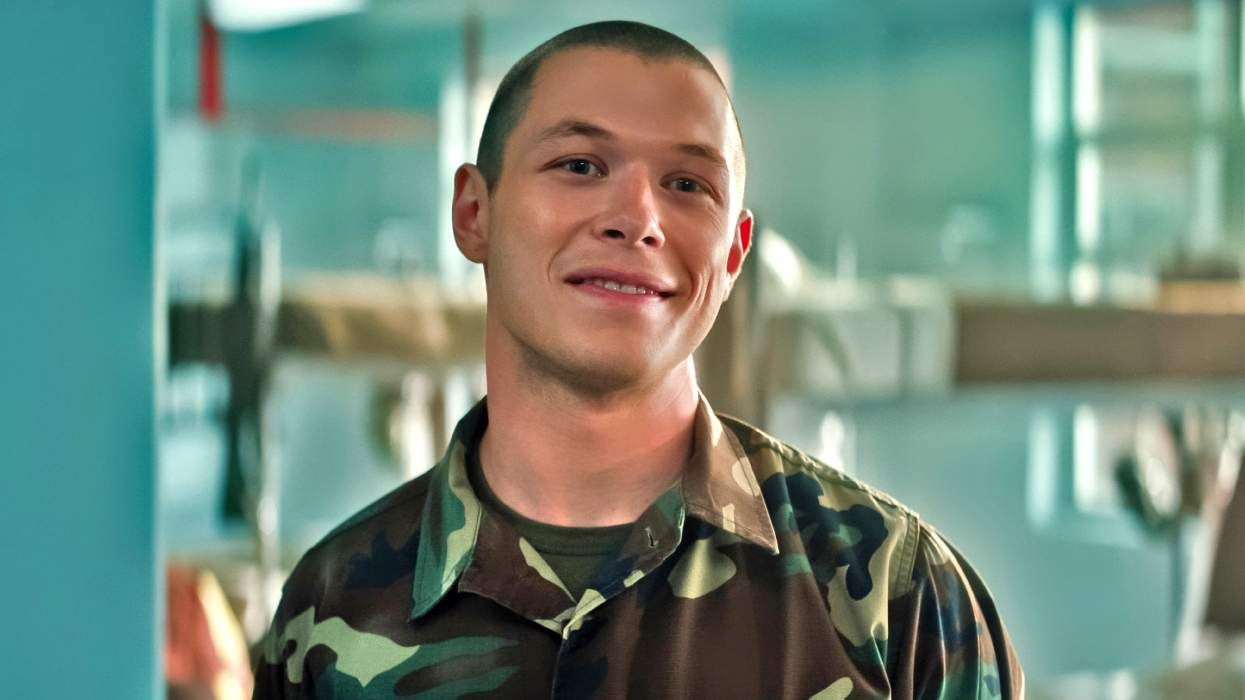Valentine Road unpacks the 2008 murder of teenager Larry King, who began exploring his gender identity in eighth grade when he was fatally shot by classmate Brandon McInerney. The film reveals the circumstances surrounding the horrific crime and both calls into question the safety and acceptance of LGBTQ youth, while challenging the efficacy and fairness of our country's educational and juvenile justice systems. "Larry was just so darn cute and sweet and innocent, and I believed they believed he was this terror sexually harassing Brandon," Marta Cunnningham explains concerning the case. "I couldn't believe it. Some of the things they said in court about him -- he was a sexual harasser, predator, out of control, serious behavior issues, unstoppable. It sounds like your describing The Hulk; no human aspects to it."
Valentine Road is powerful, moving, and, above all else, an important document of what it means to be queer in the 21st century. We caught up with director-producer Cunnningham and producer Sasha Alpert to discuss the film, which premieres October 7 on HBO as part of its Docs Fall Series this month.
Out: Marta, this is your debut as a director. What is it like launching this part of your career with such a tragic, heavy, and quite political documentary?
Marta Cunningham: I know, I'm very serious about my film tastes and what I watch and what I want to do with my career. When I was at Sundance I said my next film was going to be an abstract film about kittens and puppies. But whether it's literature or film, I just delve into the stuff with all the interesting gray area. Unfortunately there's a lot of the controversy surrounding gender issues, race issues, class issues, LGBTQ issues. I feel like now is the time to make your claim and stake out an area when it comes to entertainment. When you look at the films now, you see how many LGBTQ films there are out there, how many people are throwing caution to the wind and using their voice to make a difference, whether in the narrative world or in the job world, and how many women directors there are. I think now is a great time.
Sasha, you've shown such range as a producer, working on reality TV productions to more serious documentaries and biopics. How does Valentine Road fit into your repertoire? Does it hold a special place?
Sasha Alpert: A few years ago, we started a documentary unit at Bunim/Murray productions called BMP Film, which is kind of unprecedented for a reality company to do something that's so different from the rest of what we do. But Jon Murray -- who is the president of the company -- and I started the company and the division together and we started out doing a film called Autism: The Musical, which also aired on HBO. It was about a group of kids with autism putting on a production and it delved into their lives. I think I'm very drawn to films about people who don't necessarily have a voice for themselves. A lot of autistic kids can't even talk. Valentine Road is a story about a young kid caught up in a horrible situation, a child murdered in cold blood. So obviously he doesn't have a voice anymore. These feel like stories that need to be told.
Valentine Road is successful in giving an equally strong voice to the students at Larry's school as to the adults -- the teachers, authorities, jurors, and so on. With such a tremendous age range of perspectives, was this a deliberate strategy?
MC: Because the murder took place in an eighth grade classroom by a child and the victim was a child, that it was the best way to find out why it happened and to find out anything about Brandon and Larry. The truth about who these individuals were was going to come from the kids and not the adults. What experiences led to this event? What did the children think was happening in their own lives? There are children in the film who are out to their families, but there are children in the film who aren't out to their families. To relate to them and understand these children is a better way of understanding Larry.
I felt so many emotions, while watching Valentine Road: anger, sadness, frustration, empathy. At times I wanted to yell at some of the people on screen. But I appreciate this diversity of perspective. Do you purposefully want viewers to feel these ups and downs as they watch? Did you think it was the most honest way of telling Larry and Brandon's stories?
MC: I really wanted people to go through the journey I went through, which was exactly all of the emotions you just described. That was really important. From the beginning, we went through this experience knowing people were going to be outraged, like I was. Yes, that was deliberate. That was something we definitely decided to do. Very shortly after seeing Brandon in the courtroom, I realized that I had empathy for him, and I needed to look at that. I didn't necessarily go into this knowing I'd be doing a story about a white supremacist 14-year-old and finding empathy for him. But when I sat in that courtroom, and I saw him shackled and him in this baggy sweatshirt and his peach fuzz, I felt like it'd have been wrong to not see that he was a kid and to question whether it was fair to try him as an adult. Five to seven years in juvenile, I understand, is not long enough, but life without rehabilitation, without any therapy, without school? Is that fair? So I just felt like we needed to at least pose this question because it's happening in New York and New Jersey and more and more states where they're trying juveniles as adults. We're the only country that does that.
Marta, you worked on this film for four years?
MC: Yes, this is now my fifth year.
What was the experience like spread over that large amount of time?
MC: After the trial, there was a hung jury, and knowing why there was a hung jury, there were two days where I said, "I don't want to talk to anybody, I'm not getting out of bed." Then I was told by a reporter I worked with who said, "I'm talking to three of the jurors." I said, "Would you ask them if they'd talk to me?" She said, "Yeah." And then, sure enough, they called me up and I was like, "OK, this is not over." It was a really difficult time after that.
We were all stunned and shocked. The jurors were on the news blaming the victim. It was just a tough time, even though in the court room I saw them turn on the prosecutor and I knew it was going to be a hung jury, somewhere in the back of my mind I just didn't want to believe it. I didn't want to believe that they didn't see the value in Larry. They didn't see him as a human being. It's heartbreaking.
SA: Marta was in the court room every single day, and I went a few times. Even what I saw was rather surprising. I mean, teachers getting up there, essentially saying that Larry was really coming on to Brandon, or that Larry was totally inappropriate because of the way he accessorized his clothing. There was an anger at Larry that was really surprising and, I would have to say, extremely unexpected.
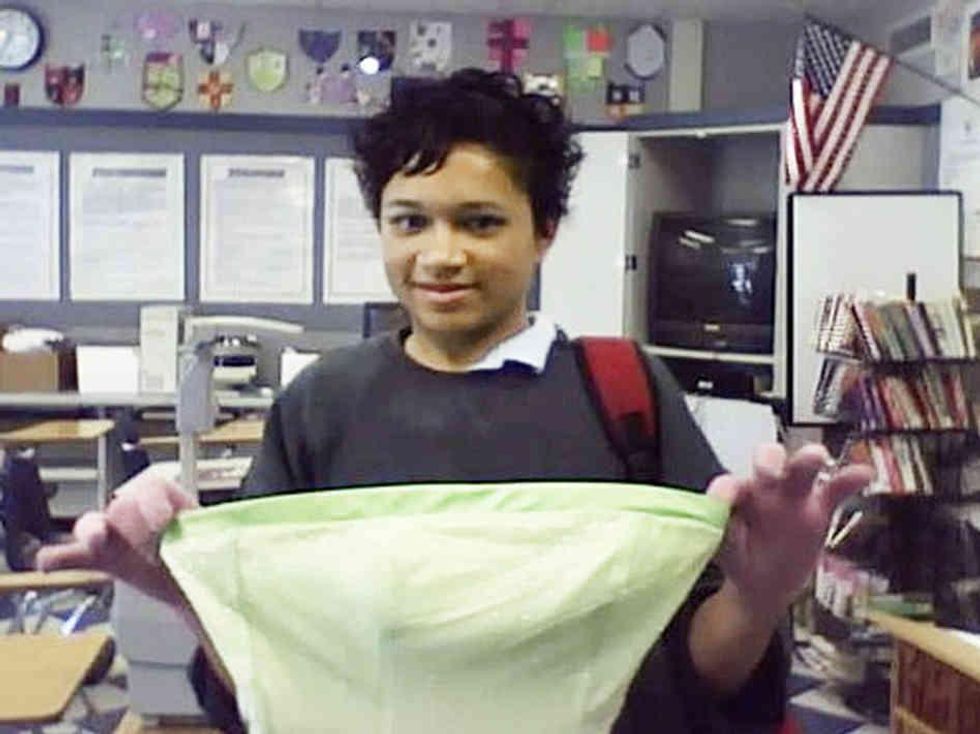
SA: It's sort of an institutional desire to not want kids to be super different from other kids. I don't just mean because Larry was accessorizing like a girl, but also because he was really different. I think somehow, as a culture, we have to learn to be more accepting of people who are different. This is an extreme example of it. The fact that Larry was not supported, for the most part, by the administration, is extremely sad.
One of most shocking players in the film is the school administration. They did not educate the students about accepting differences, about tolerance. Instead, for the most part, they smothered the drama, shoved it under a shelf, did not handle it. Was showing this side of the education system a primary objective?
MC: Yes, we have to create a legacy for Larry outside of the sadness and the horror. We have to. Just like we have to do with Trayvon Martin. The cases are very similar and they did the same thing where they blamed the victim. They also made this Hulk-strength. It's this very specific thing they do to black kids. Trayvon Martin had an iced tea and Skittles. I remember reading something online where it said, "If you eat Skittles and you have a Snapple and you're African American that it does something different to your chemical system." What are you talking about?
When you get into these racial debates and these LGBTQ debates, you have to remember that some of the stuff you're debating is irrational behavior, but you also have to remember that there's a lot of fear involved. One of the reasons why we want go out on the educational circuit is we want to dispel some of this fear. The fear that surrounded Larry's case is ridiculous. Absolutely ridiculous. I don't see the difference, personally. He could have been my brother, my cousin, a kid I went to school with.
At a time when the U.S. is continually debating gun laws and LGBTQ rights, it seems important that we keep remembering and talking about these tragedies. How do you hope Valentine Road contributes to this dialogue?
SA: I think it's really important to make a film that doesn't just preach to the choir but opens up dialogue among many people. We hoped that this film gets seen widely in schools and that teachers can learn a better way to deal with a situation like this and to learn to teach acceptance in the classroom and model behavior that will really help these kids. I think there's going to be a lot of dialogue around this and it's not an easy film. It will certainly get a lot of people talking and I think that's the most important thing that could happen. I rarely have seen people stay for the Q&A after, but I think they feel they have to talk about it afterward. It's also reached people who you might not think it would reach, people that maybe went into this with one opinion and came out with another. These are very complicated issues that, if you can just get people to talk about them, think about them, not be entrenched in how they think about things, and be more open minded and accepting, then you've done the best you can.
Watch the trailer for Valentine Road below and catch the full documentary tonight at 9pm on HBO.


